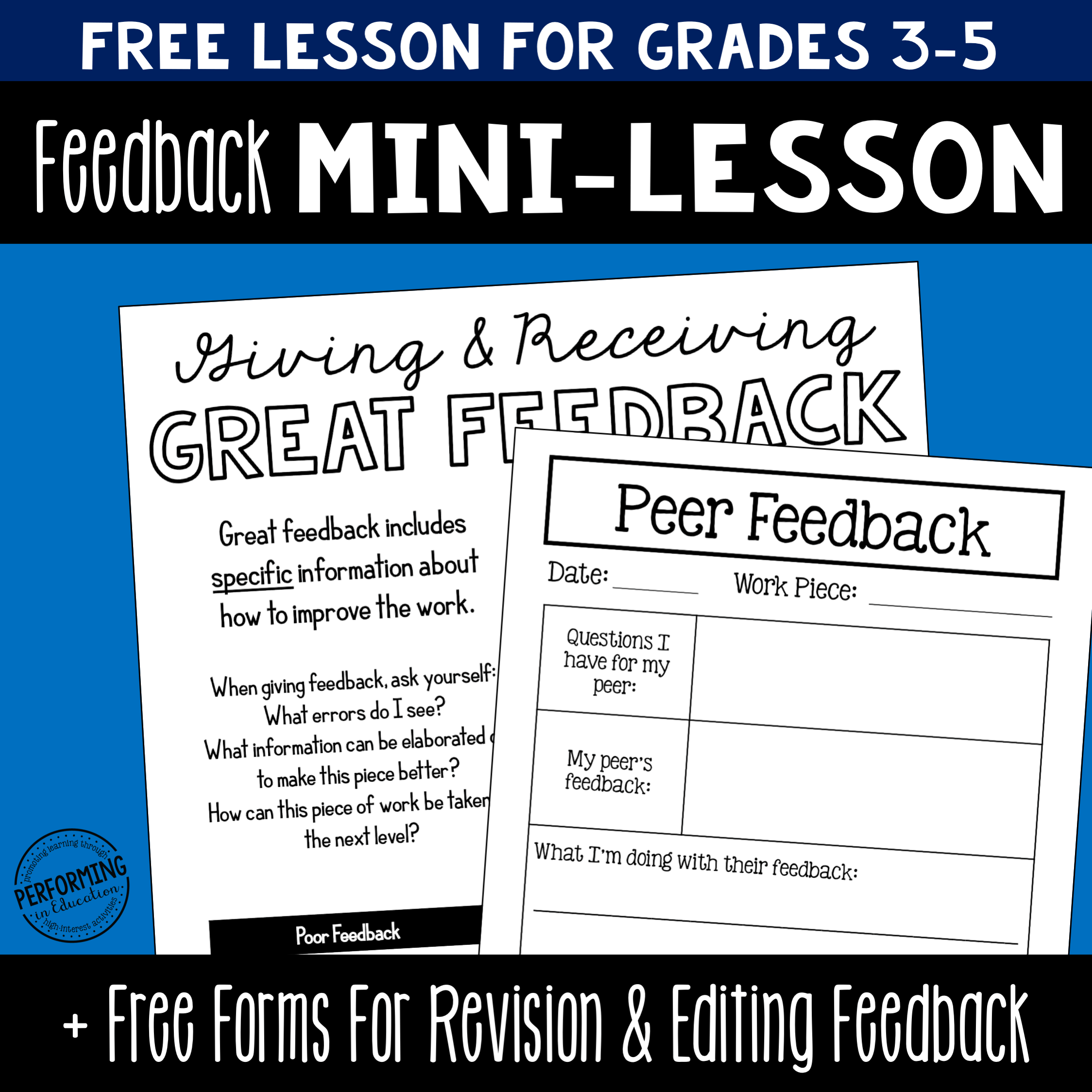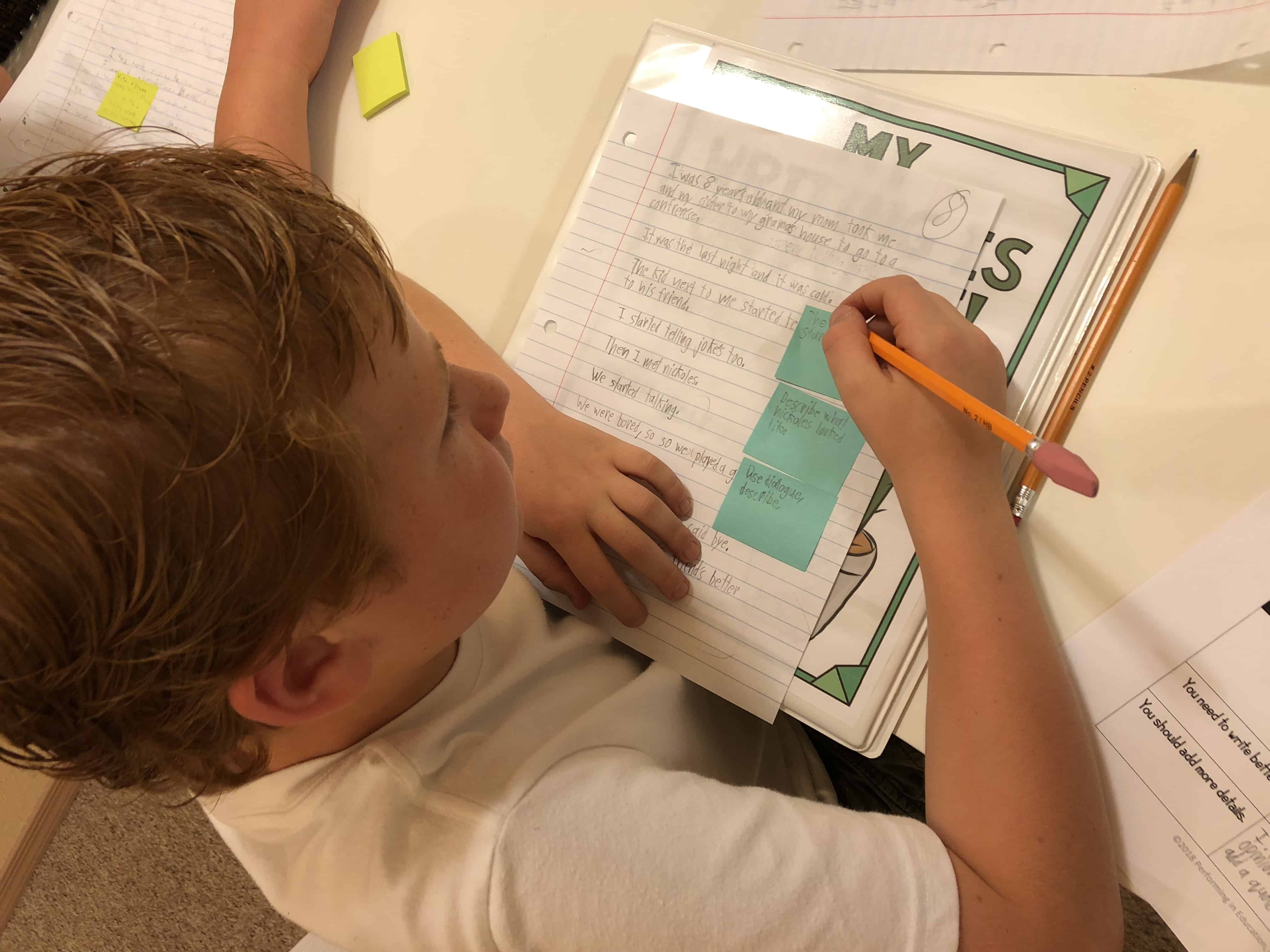Common Problems:
- Students have trouble finding errors. Some students can't seem to find ways to revise or edit their own writing but do okay when looking at their partner's writing. Other students seem to struggle with finding errors in any work they are looking at.
- Revision & editing takes too long. Let's be honest, it's a time-consuming process, especially when you are pulling kids back to help them with the process.
- Students don't provide quality feedback to other students. How many times do you see comments like, "I really like it" or "It's good" and no real feedback that students can use to improve their writing?
What I mean when I say "authentic"
If you noticed in the title I included the word "authentic". I think it's important that students be taught the process as it is used in real life. In real life, authentic revision & editing happens when you write a book, a blog post, or an email. There are many times we have someone else look over our work to edit and revise it for us. And, we self-edit these things ourselves every day as well. Because I believe students need to know how to use the skills of revision and editing in life I don't want to just hand them a checklist of things to look for. I want them to work through the process in a way that creates a more authentic experience. Here are a couple ways you can do this:-
- Have students meet in groups. They can talk about their work together and get feedback. Real authors do this all the time
- Utilizing the skills of the strong editors. Strategically partner students up while utilizing the skills of the strong editors. This allows the kids that are struggling to learn from those that are more skilled in this area.
1: Teach Students Directly About Feedback
You want the revision & editing process to lead your students to make drastic changes that improve their writing. You want them to get ideas through the process that will help them to improve the structure of their writing along with making it higher quality. I've found that students tend to be trained to look for mistakes but still struggle with finding suggestions on how to elaborate on or improve an idea. Before asking the students to provide any feedback I give them a mini-lesson called Giving and Receiving Great Feedback. I use an anchor chart and model for them what great feedback looks like through this process. Then, we practice it every time we revise. I constantly have them go back to this page in their notes. It's always the first page in the writing binder so they can find it easily.If I hear them giving poor feedback I ask them to go back to the first page in their binder. They are supposed to look at it and then give more specific feedback. It takes a lot of work and needs to be constantly reinforced and modeled.

Get this lesson for free!
2: Focus on Questioning
I teach students to ask specific questions when it comes to revision & editing. This works in two ways.- The student revising can ask the question. If they are struggling to find feedback to give they can ask the writer "What do you need help on?". This helps give them a specific area to focus their attention on.
- The writer should have questions about their writing. The worksheet that I give students includes a place for them to ask questions. They should have specific things they are looking for help on in their writing. Here are a few examples:
- Should I add more dialogue?
- Does this conversation make sense?
- Is there anything I should elaborate on to make it more clear for the reader?
3: Actually Use the Feedback
Feedback is only beneficial if the students use it. Students need to be taught to receive feedback and make a plan. Then, when they go back to their desk they are ready to make the improvements. Using sticky notes is an effective way to teach students how to mark where they want to use the feedback they have received. During one group conference, I even watched as a student who wasn't receiving feedback at the moment reached for a sticky note because he was inspired with an idea on how to make his personal narrative a little clearer.
It's important to teach them to get the revisions down immediately so they don't forget it before they have a chance to make the changes. Using this process will make life easier for you as the school year goes on. Usually, by January/February I find that students have made significant progress in their abilities to revise and edit. I'd love for you to take advantage of these resources to help yourself and your students.



